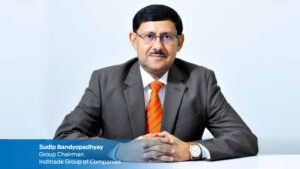Be it ‘Shark Tank’ or ‘Forbes India’s 30 under 30 awards’, sustainable innovation has taken centre stage and been attracting significant attention. Even the government has begun encouraging ‘green’ concepts, like green hydrogen, green building and green technology in various other spheres and leading industry players are towing this line.
The Network for Business Sustainability (NBS) defines ‘sustainable innovation’ as making intentional changes to a company’s products, services, or processes to generate long-term social and environmental benefits while creating economic profits for the firm.
Interestingly, in the past, there appeared to be a trade-off in the short term, between the application of sustainable innovation and enhancing bottom lines of enterprises. When a cost-benefit analysis was undertaken to ascertain whether such sustainable innovation should be pursued, the scales tipped in favour of status quo, unless they were balanced by mandates from authorities. For instance, companies from chemical, cement, petrochem and various other industries have the ability to implement innovation that would reduce the levels of their air and water pollution, at some cost; the shift to the production and use of CNG vehicles would mean less harmful emissions but again, the switchover would entail a cost.
But that’s all changing, partly due to regulation but more due to the simple truth that aspiring for Sustainable Development Goals (SDGs) are no longer a matter of ‘good to do’ but ‘must follow for long term survival’. That being so, there is also a strong trend emerging at the investor level: any theme prefixed ‘green’ sells like a hot-cakes on Dalal Street or Wall Street. Even institutional investors – Venture Capitalists, Angel Investors and the Private Equity community – have been shunning corporates with products and services that are not Environmental, Social and Governance (ESG) compliant.
All these trends suggest that going ahead; innovators will pursue solutions that are sustainable. They may craft novel products or services that directly contribute to achieving sustainability or take on current products and services and find ways to make them more environments friendly. The challenge for innovators will be to ensure that the financial prospects of businesses that provide these products or services are not adversely impacted but rather, receive a boost.
Kerala’s Cochin International Airport Ltd (CIAL) is a perfect illustration of sustainable innovation. The airport commissioned a 12 MW solar project in 2015 and now it expects to generate more power than the airport requires. Tracing the evolution of this sustainable innovation, it’s clear that for many centuries, the sun was known to be the ultimate power house but harnessing its energy for use by humans was a technical hurdle. The emergence of photovoltaic cell technology solved that issue but it had its own commercial challenges due to the support systems and maintenance it required. During early stages of implementation, the cost of solar energy worked out to 3-4 times that of electricity generated from conventional sources like coal, hydropower, or petroleum. Yet CIAL implemented innovation at various levels to achieve the prestigious status of becoming the first airport in the world to be running fully on solar power.
There are many other success stories that endorse the belief that innovations of the future will converge towards sustainable solutions. This is not only because of the need for such solutions and availability of funds, due to preference for them. Sustainable innovative will flourish because more minds will be geared towards innovative thinking as automation and the use of digital technology frees up human resources to undertake more value-added occupations and sharing of information will provide a broader base that enables elimination of repeated trial and error around the evolution of such concepts.





















